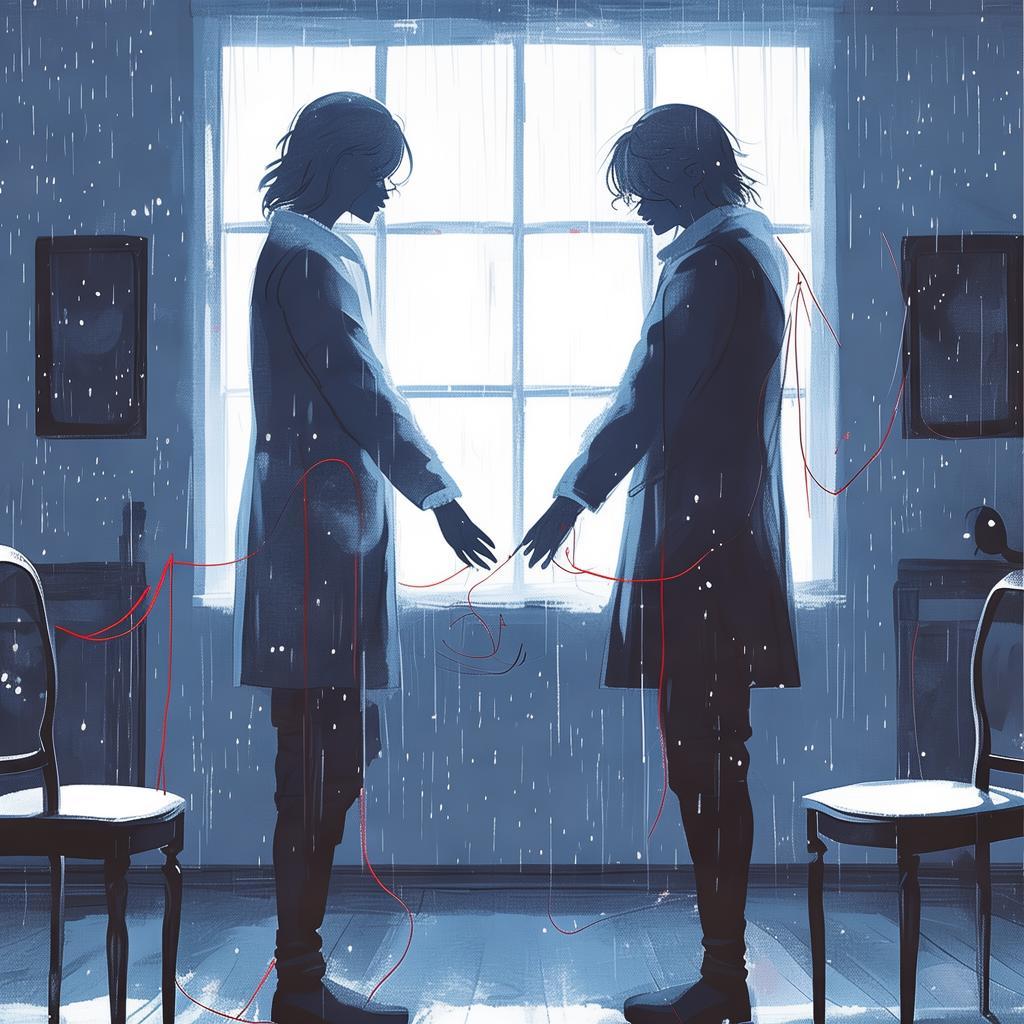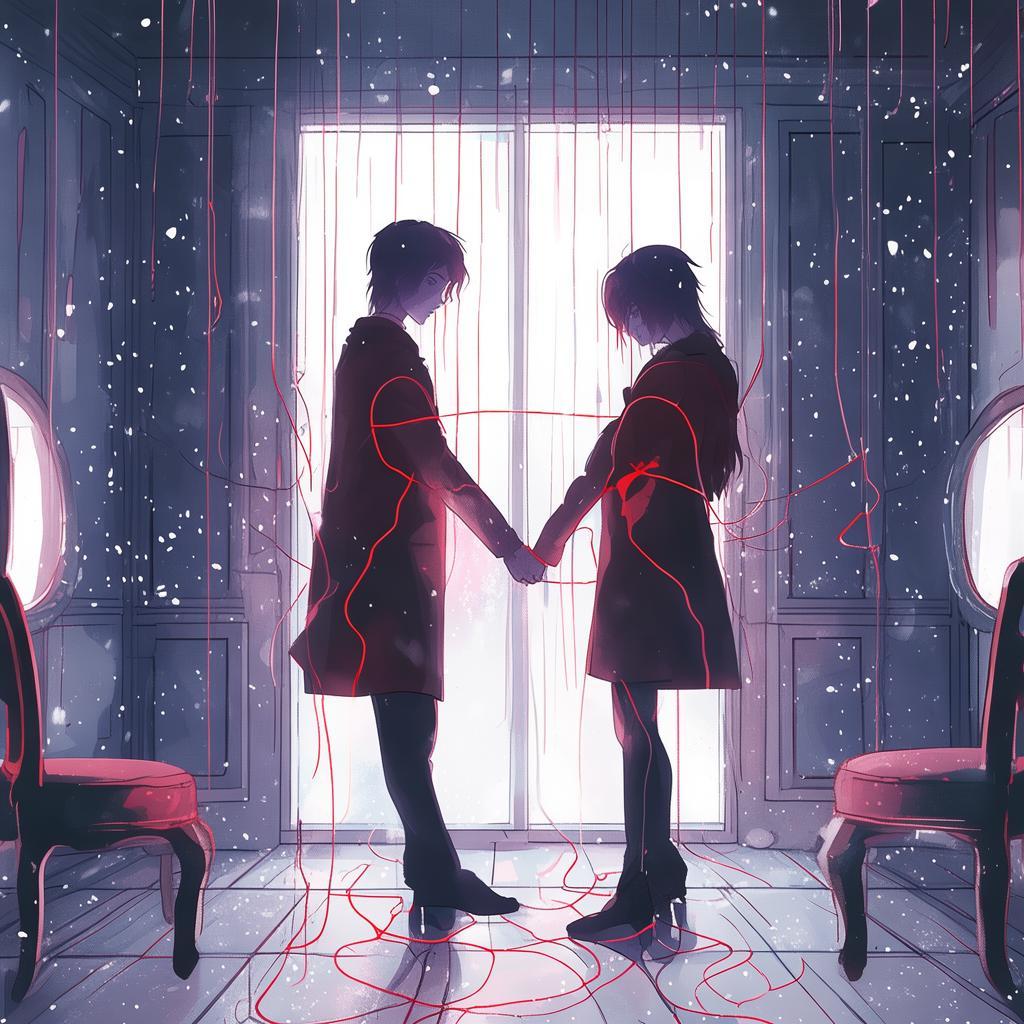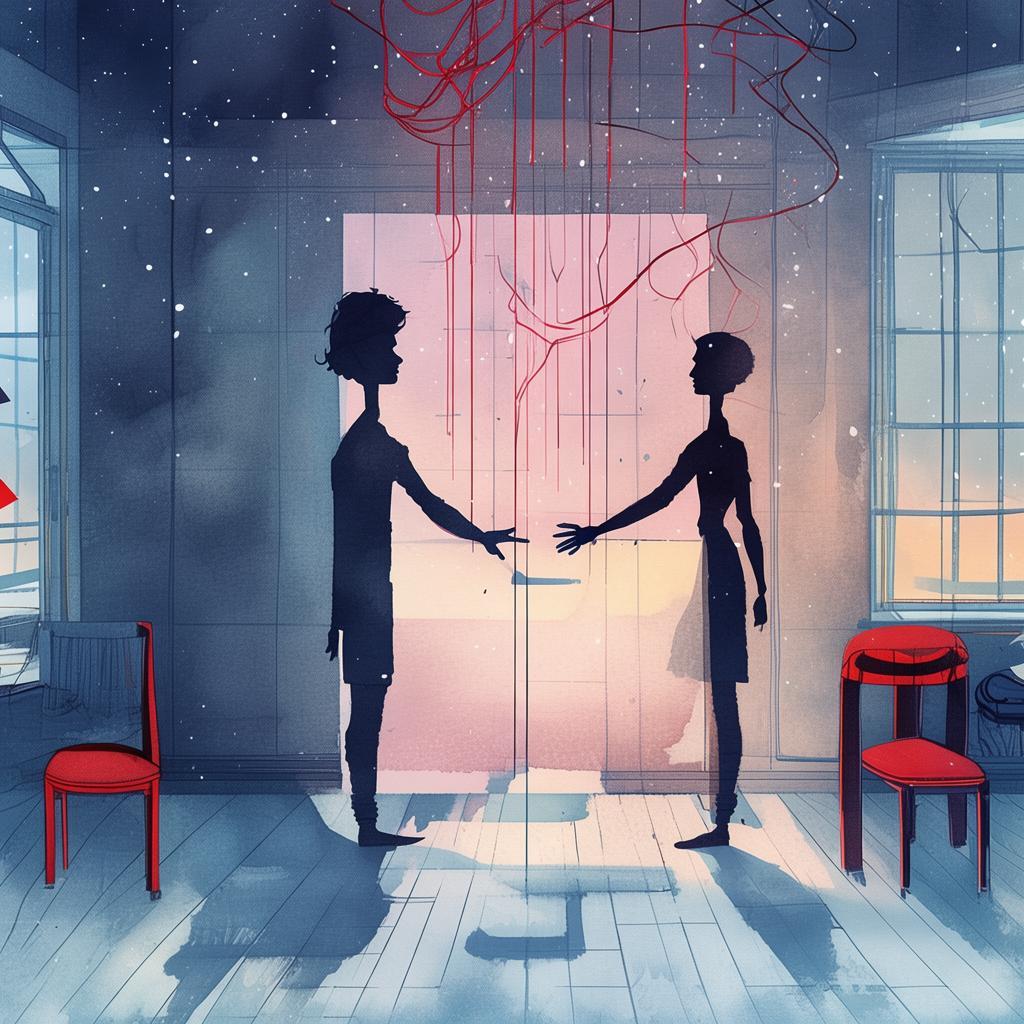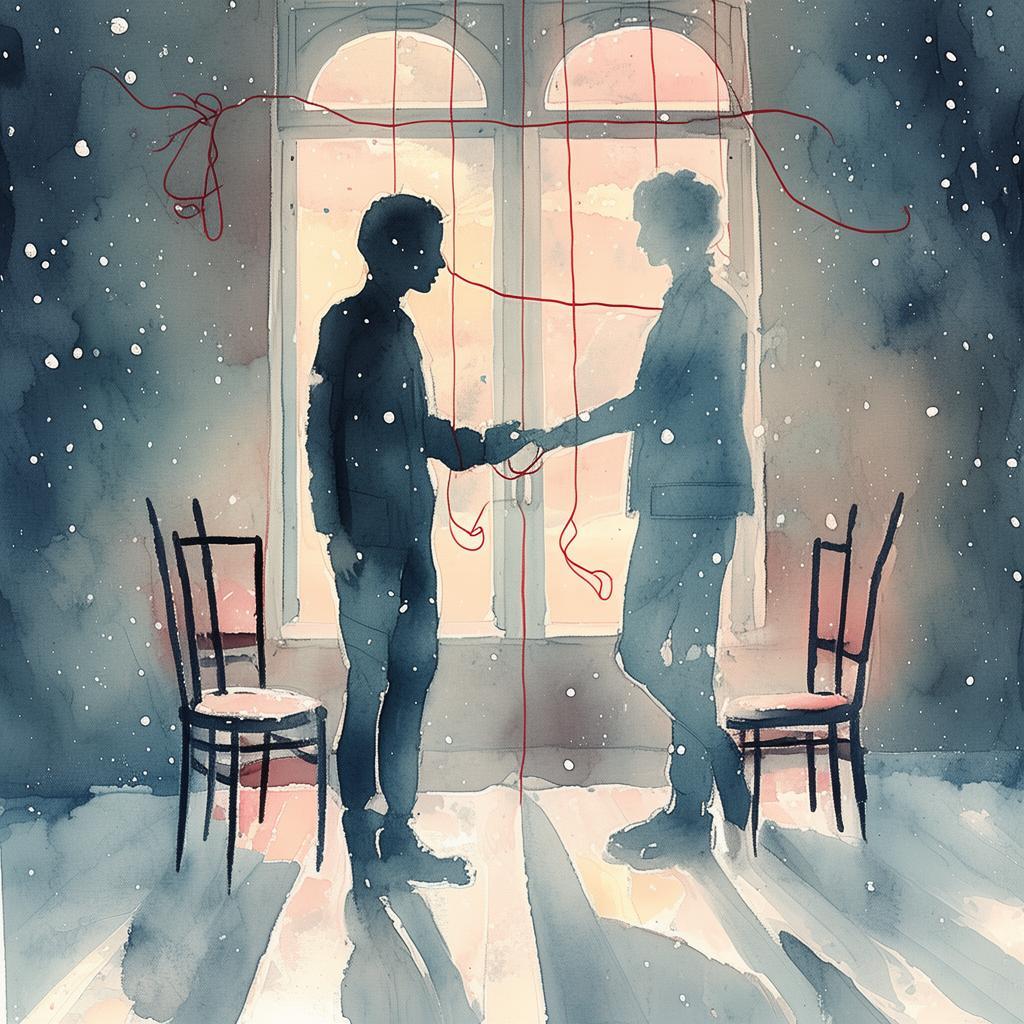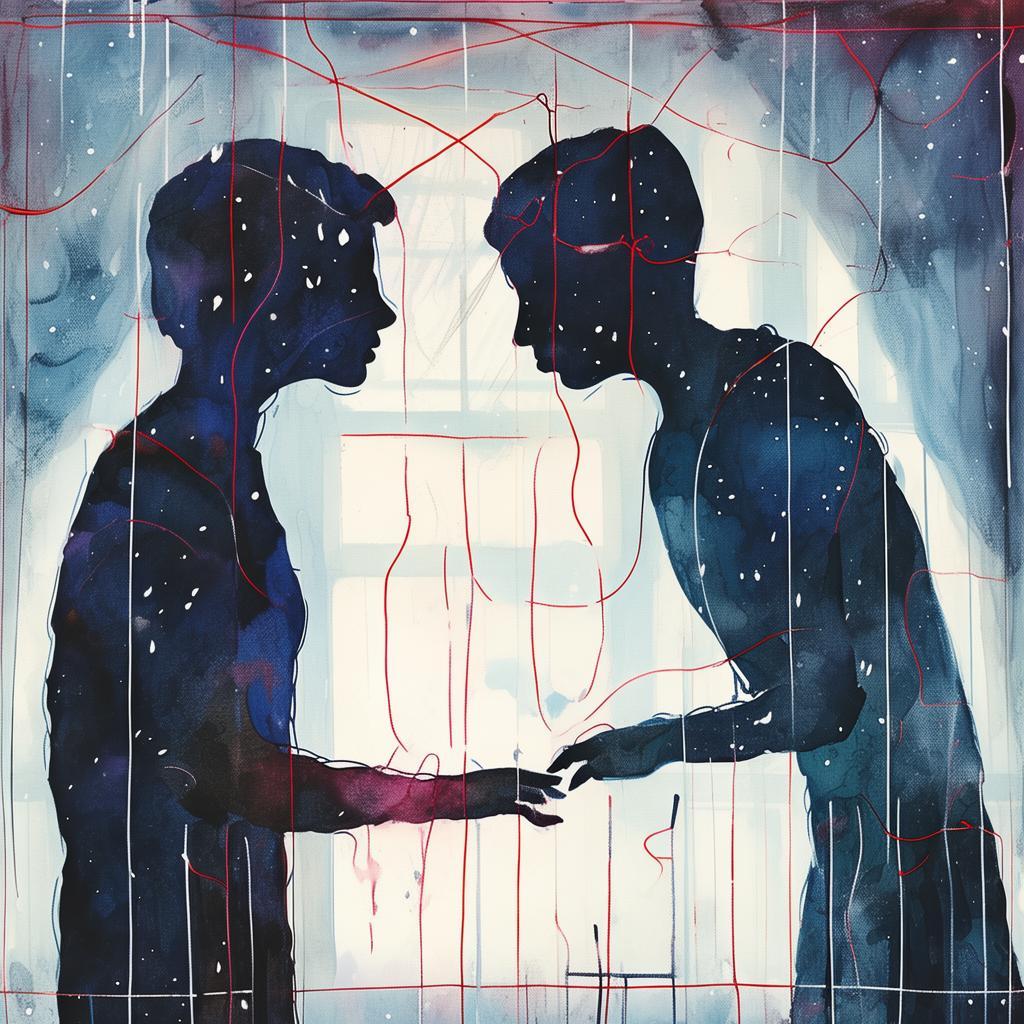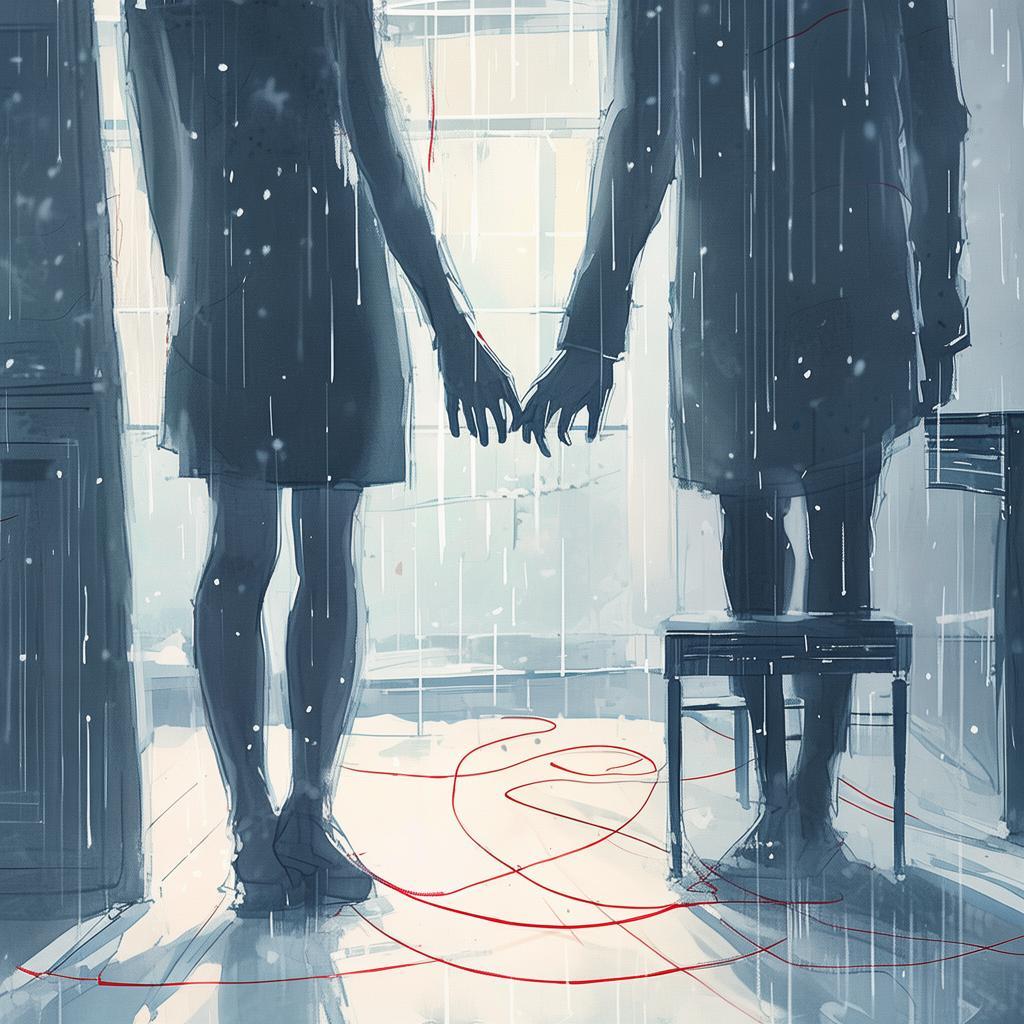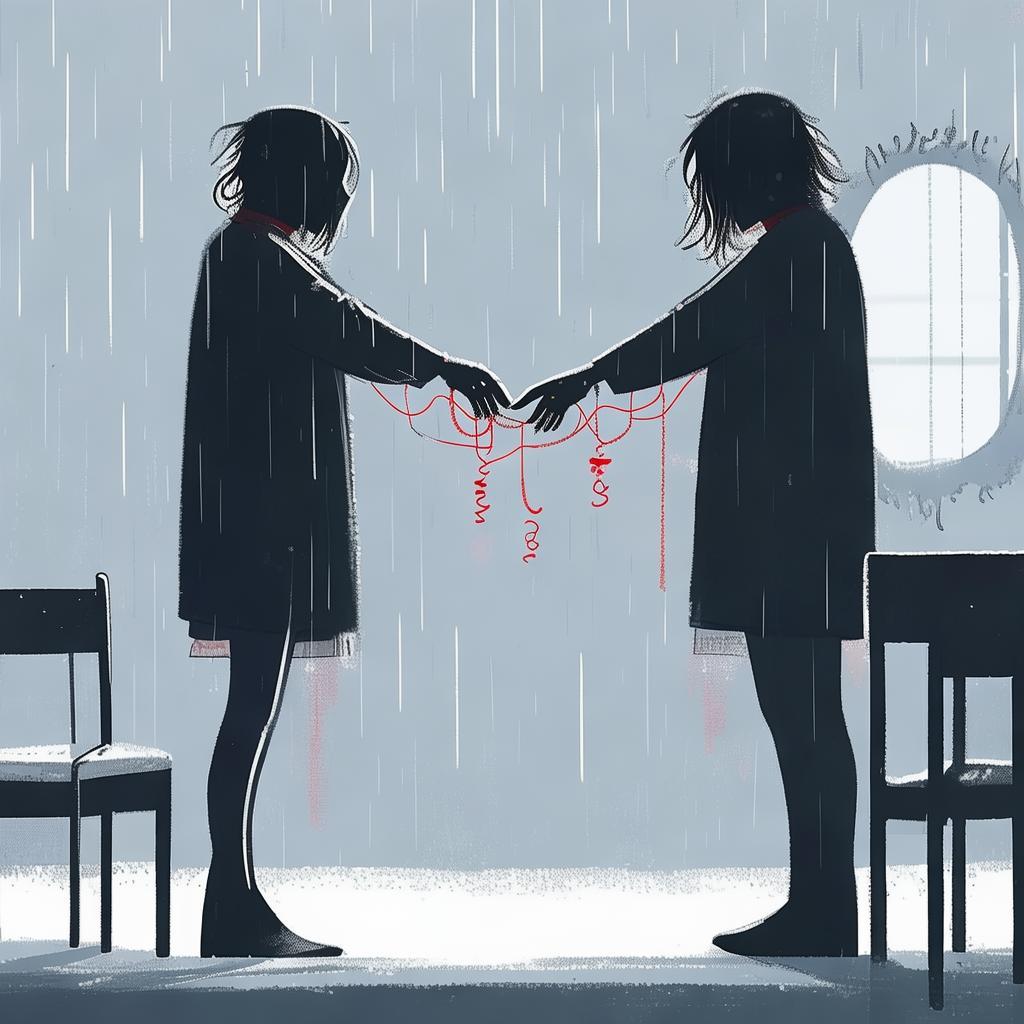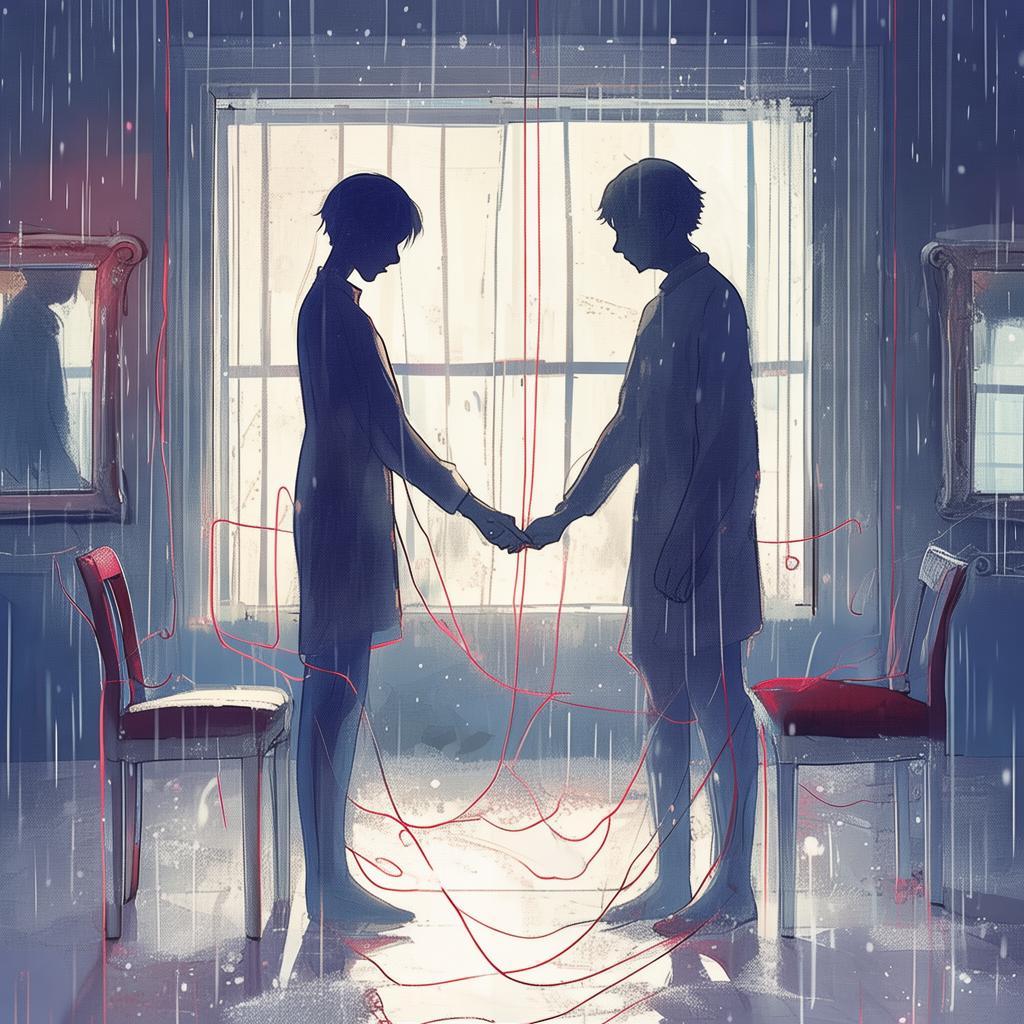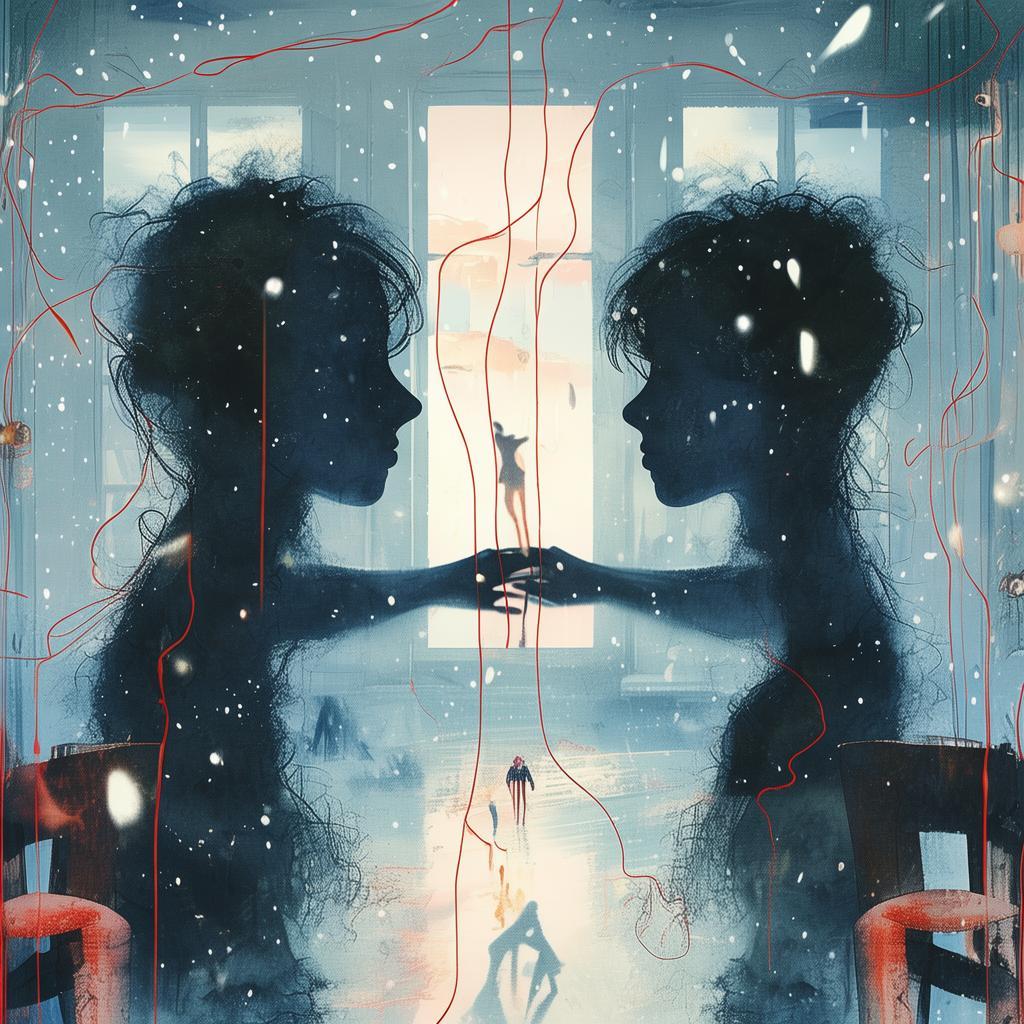The Ebb and Flow of Philosophical Hearts
In the serene town of Aetheria, where the whispers of ancient philosophers echo through the cobblestone streets, there lived two intellectual souls: Lucius, a brilliant philosopher known for his analytical mind and unyielding logic, and Aria, a free-spirited existentialist whose thoughts danced with the randomness of the universe. They were as different as night and day, yet their shared passion for philosophy and the pursuit of truth brought them together in an unlikely friendship.
Their paths crossed at the Aetherian Philosophical Society, a prestigious institution dedicated to the exploration of profound ideas. It was there that they met a third individual, Elysia, a woman whose beauty was matched only by her enigmatic presence and her deep understanding of metaphysics. Elysia was a guardian of ancient texts, a keeper of secrets that could reshape the world's understanding of philosophy.
Lucius and Aria were instantly intrigued by Elysia, though they approached their fascination in different ways. Lucius, with his logical mind, sought to understand the philosophical underpinnings of Elysia's knowledge, while Aria, with her free-spirited nature, found solace in Elysia's serene demeanor and her unspoken wisdom.
As time passed, their friendship evolved into something more. Lucius found himself drawn to Elysia's strength and intelligence, while Aria, in turn, found a kindred spirit in the woman who seemed to embody the very essence of the world's mysteries. Yet, their growing affection for Elysia created a love triangle that tested the very fabric of their beliefs and their understanding of love.
The Philosopher's Love Dilemma became the central question that plagued Lucius and Aria. Could love exist beyond logic and reason? Was it possible to maintain a pure, philosophical love without the constraints of societal norms and personal desires? Elysia, caught in the middle, was the embodiment of this dilemma, a figure who could not be confined by labels or expectations.
One evening, as the stars above Aetheria twinkled with ancient wisdom, Lucius and Aria found themselves at the heart of the philosophical society, discussing the nature of love and its role in their lives. The conversation took an unexpected turn when Elysia, ever the enigma, revealed a hidden truth: she was the embodiment of a philosophical concept, an idea personified.
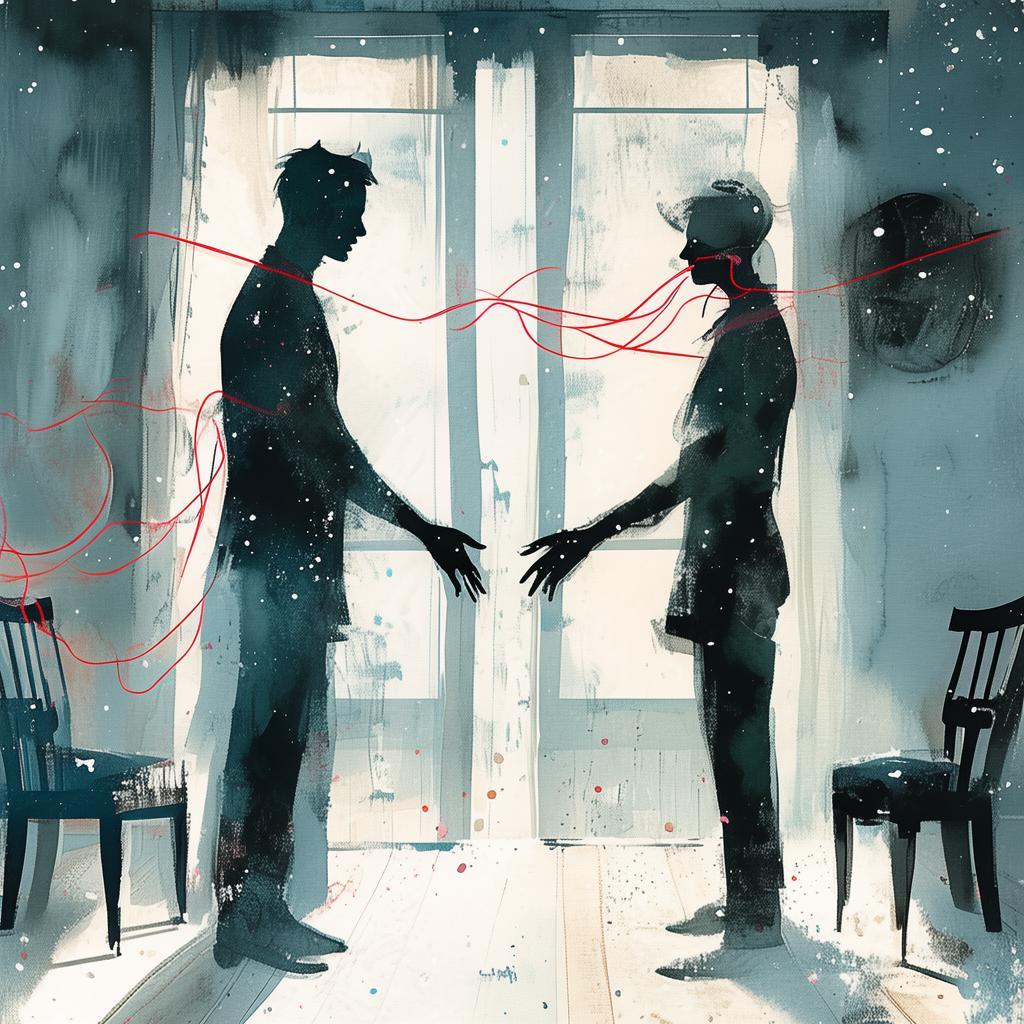
The revelation shook Lucius and Aria to their cores. Their love for Elysia was not a matter of passion or desire, but an exploration of the essence of love itself. The question now was not whether they could love Elysia, but what that love truly meant.
In a twist of fate, Aetheria was struck by a sudden crisis—a series of philosophical riddles that threatened to unravel the fabric of society. Lucius, Aria, and Elysia were tasked with solving the riddles to save the town from chaos. The journey was fraught with emotional turmoil, as each person grappled with their own understanding of love and identity.
During the quest, Lucius and Aria found themselves in a heated debate over the nature of love. Lucius, still bound by logic, argued that love was a concept to be analyzed and understood, while Aria believed that love was a feeling to be experienced and embraced. Elysia, ever the mediator, listened to their arguments, her eyes reflecting the depth of her philosophical insight.
The climax of their journey came when they discovered that the source of the crisis was a misunderstanding of love itself. The town had become divided over the idea that love could only be logical or emotional, and not both. Lucius and Aria, with Elysia's guidance, worked together to reconcile these opposing views, leading to a profound realization about the nature of love.
In the end, it was not Elysia's love that changed Lucius and Aria, but their love for Elysia that changed them. They came to understand that love is not confined to logic or emotion; it is a complex tapestry of both, woven into the fabric of their beings.
As the crisis was resolved and the town returned to peace, Lucius and Aria stood side by side with Elysia, their love for her transcending any human desire. They realized that their bond was not one of romantic love, but of shared philosophical understanding and mutual respect.
The Ebb and Flow of Philosophical Hearts concluded with a twist that left readers pondering the true nature of love. Was it a logical construct, an emotional experience, or both? The story left them with a lasting impression, a reminder that love, like philosophy, is a journey that knows no boundaries and defies all definitions.
✨ Original Statement ✨
All articles published on this website (including but not limited to text, images, videos, and other content) are original or authorized for reposting and are protected by relevant laws. Without the explicit written permission of this website, no individual or organization may copy, modify, repost, or use the content for commercial purposes.
If you need to quote or cooperate, please contact this site for authorization. We reserve the right to pursue legal responsibility for any unauthorized use.
Hereby declared.
